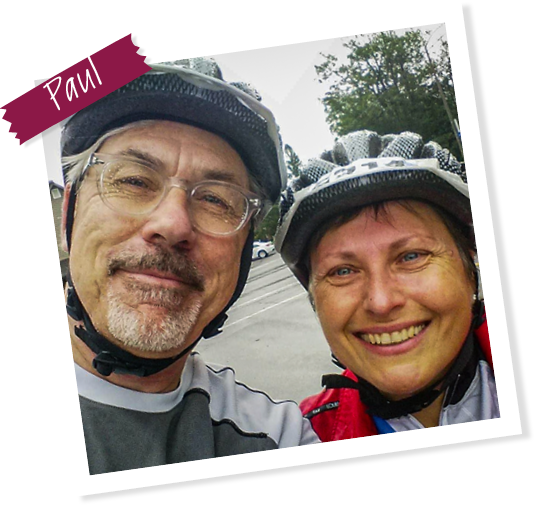Paul, caring for his wife
 I was the primary caregiver for my wife Suzanne who was initially diagnosed with stage 3 metastatic breast cancer, which eventually progressed to stage 4. I was a professor of journalism and she was a diplomat. After we received the news that her cancer had progressed to stage 4, she lived for another 32 months. Although the chemotherapy and radiation drained her, she remained her normal curious and engaged self and was able to travel until the last few months of her life.
I was the primary caregiver for my wife Suzanne who was initially diagnosed with stage 3 metastatic breast cancer, which eventually progressed to stage 4. I was a professor of journalism and she was a diplomat. After we received the news that her cancer had progressed to stage 4, she lived for another 32 months. Although the chemotherapy and radiation drained her, she remained her normal curious and engaged self and was able to travel until the last few months of her life.
My caregiving role in the beginning was attending treatments and appointments with her. She encouraged me to jump in, ask questions and take notes. I was also her emotional support and her sounding board for her care. As her cancer progressed, I began doing most of the housekeeping; although she would try to help, she would be quickly overcome with exhaustion.
Suzanne never really, until the end, stopped parenting, but I did take on more of the emotional responsibility of taking care of the kids and helping them to manage their feelings.
I supported my wife and our two children reasonably well from this standpoint. The formula we came up with after trial and error about how to speak to our children was to tell them what we knew about Suzanne’s illness and not what we feared. Kids need to know that you are telling them the truth but don’t need the burden of what you worry might happen.
Caring for the rest of the family made me disregard my own emotions. It was the only way I could cope. I sometimes describe my coping strategy as “car crying”: I would cry and let it all out when I was in an isolated space, pulling myself together when I would get to my destination. A great help was attending meetings with cancer coaches at the Ottawa Regional Cancer Centre to speak with people going through similar challenges. I felt so frustrated and let down by the healthcare system because of the lack of guidance we were given regarding end-of-life care. When we asked questions one year before her passing, about what to expect down the line as the cancer progressed, they would dismiss us saying that we weren’t there yet. There was no hand off between the oncologists to palliative care, leaving us without a doctor for a time. This lack of continuity of care caused unnecessary anguish for Suzanne and our family. There was no advanced life planning done with us and as a result, I was forced to make decisions I was unprepared for in the end.
If I can provide some advice it would be to advocate for more information because the system is not going to provide it to you. Challenge medical decisions and ask questions. Health care professionals are not going to stitch your values into your care and many will not discuss care goals unless you put them on the table. I would also advise caregivers to broaden their circle of care and accept help. Finally, be prepared for caregiving to tear apart the idea of equality in your marriage. Both partners aren’t giving or receiving equally when one is sick. It is an adjustment that can be so difficult for both.
With regards to caregiving, the best approach is to be realistic about where the disease may lead while remaining hopeful. Hopeful that treatments may extend life and make it more livable. But be prepared for what is to come and remember that there is still a life to be lived for as long as your loved one is here.
